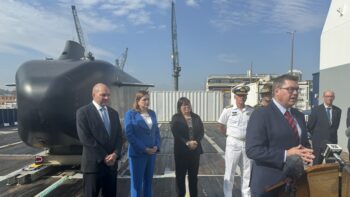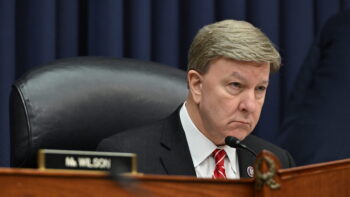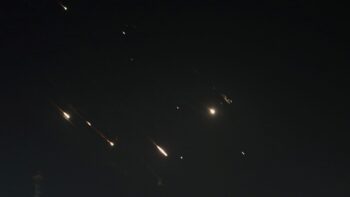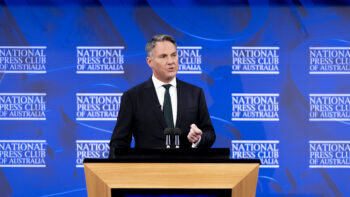
MOSCOW: The diplomatic quest to engage Iran and allay fears it seeks the bomb may have hit a big brick wall here.
Iran and the US-led group of six nations with which it is negotiating could not reach agreement on how to guarantee the Islamic Republic will not make nuclear weapons. The two sides halted the senior-level talks begun with much fanfare in April. After three dramatic, headline-grabbing meetings in Istanbul, Baghdad and Moscow they admitted they needed to take a step back and allow for experts to examine open questions. For the first time since the process began, no new high-level political meeting was scheduled.
The talks foundered on two points. Iran refused to back down on its enriching uranium to levels seen as too close to weapon-grade. The second was that the six nations, known as the P5 plus 1, refused to reduce sanctions designed to pressure Iran to make concessions. Indeed, US and European Union sanctions designed to reduce Iran ‘s oil revenue by a third come into effect in less than two weeks. It is a good sign, however, that Iran did not walk out of the talks because of this.
Still, the fallout from the setback to hopes for a quick breakthrough in the Iranian crisis is not clear. It comes with Israel continuing to threaten to attack Iran and with President Barack Obama’s margin of maneuver to ignore harsh rhetoric from his Republican opponent and make a deal for peace limited by the upcoming presidential election.
The two sides were “miles apart,” one diplomat here said. Catherine Ashton, the high representative for the European Union, who speaks for P5 plus 1, said the six had presented a “balanced proposal” for Iran to stop 20 percent enrichment, to ship out stockpiled 20 percent uranium and to close the Fordow enrichment facility which is built under a mountain and so protected from air attack. But Iran said it found the proposal unbalanced, since it would not have granted sanctions relief in return for eventual compliance, and presented proposals of its own, which included having Iran’s right to enrich recognized as “inalienable.” Ashton said that after “detailed, tough and frank exchanges, after five plenary sessions and several bilateral meetings … it remains clear that there are significant gaps between the substance of the two positions.”
A senior US official said Iran had “responded quite directly and quite thoroughly ” to the proposal and that this constituted progress. But the talks did not go much further. Even the format of proceeding with expert talks was only reached after several bilateral meetings between Ashton and the Iranian delegate Saeed Jalili, as well as the Iranians with both the Russian and Chinese delegations.
The US official said there was a rationale to go to experts consulting since the nuclear issue is “highly technical.” But the six are still waiting for Iran to “make a choice,” as it faces increasing sanctions if it does not take steps to reassure the international community that it does not seek the bomb, the official said. “All of our sanctions will go into effect in July,” the official said, referring to measures in both Europe and the United States to punish nations which buy oil from Iran. These are the toughest sanctions to be imposed on Iran in the almost 10 years since the crisis began. They are already having severe effects on Iran’s ailing economy as nations such as China, Turkey and Japan work on cutting their purchases of Iranian oil. The official said the sanctions could be intensified. “The pressure track is not stopping because they (Iran) have not taken any concrete action,” the official said.
So obviously the diplomatic process will slow, and possibly grind to a halt. Experts will meet on July 3 to “provide further clarification” about the two sides proposals. Then Ashton’s and Jalili’s deputies are to meet and if this produces positive results Ashton would “be directly in touch” with Jalili “about prospects for a future session at the political level,” Ashton said. A new round, such as Istanbul, Baghdad and Moscow, remains tentative.
A Western diplomat said the negotiations in Moscow had not yet reached the level of bargaining but were still limited to “an exchange of views.” Connections were not being made. For instance, the Iranians want their right to enrich recognized and to get sanctions relief as they claim to have cooperated with the UN watchdog agency which investigates national nuclear problems. But, said diplomats, the United Nations has sanctioned Iran repeatedly to get it to suspend uranium enrichment, which provides fuel to power reactors but also for atom bombs, until suspicions are removed about its atomic intentions. Meanwhile, the watchdog International Atomic Energy Agency is waiting to get better cooperation from Iran. In addition, Iran wants to discuss regional issues, such as unrest in Bahrain and Syria, with the P5 plus 1, even though that is not necessarily related to the nuclear issue.
Diplomats close to the negotiations rejected the charge that they were degenerating into “talks for talks sake.” The US official pointed out that sanctions against Iran are biting and forcing Iran to negotiate. Jalili himself described the talks in Moscow as “more objective, more serious and more realistic” than in the past. But the problem remains that the two sides are not just apart in details but in how they view the negotiations themselves.
The Iranians want to redefine the debate. They dispute the challenge to their nuclear work by saying this is an attempt to deny their right to peaceful nuclear technology under the Non-Proliferation Treaty. This is why they want the United States and its negotiating partners Russia, China, Britain, France and Germany to unconditionally recognize their right to enrich uranium. The six nations are not about to do this as they want Iran to cut down on enrichment as a first step to build confidence. This gulf remains. The goal of winning “concrete steps” from Iran is still far away. This gives fuel to those who argue that time is running out because Iran continues to expand its enrichment and other nuclear work. And it puts a question mark over what the results in Moscow mean going forward.
Michael Adler, a scholar at the Woodrow Wilson International Center for Scholars, is writing a book on diplomacy in the Iranian nuclear crisis. Michael covered this extensively for five years while in Vienna, where he reported on the International Atomic Energy Agency.
Connecticut lawmakers to grill Army, Lockheed about job cuts at Sikorsky helicopter unit
“The Connecticut delegation has questions about why, with that [FY24] appropriation in hand, this happened,” said Rep. Joe Courtney, D-Conn.


























